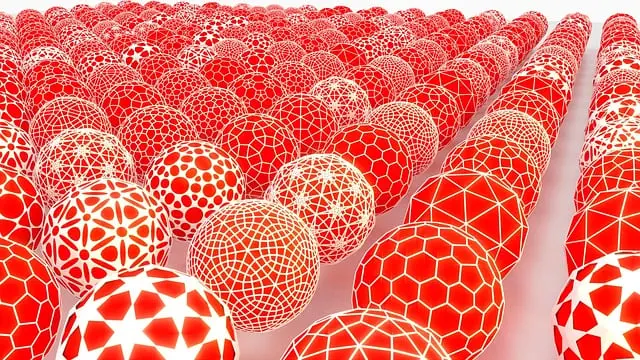Delta-8 THC, a synthetic hemp-derived compound, offers a milder high and unique effects compared to Delta-9 THC, making it a promising healthy alternative to coffee for energy. With consistent dosage and purity ensured by lab production, Delta-8 provides relaxation, relief, and improved mood without the intense anxiety associated with traditional cannabis. It interacts with the endocannabinoid system, promoting alertness, focus, and well-being while contrasting coffee's jittery side effects. However, safety concerns and quality control issues remain unaddressed, requiring caution from users, especially those with health conditions. As regulations evolve, Delta-8 THC could revolutionize wellness, offering applications in stress management and chronic pain relief.
“Delta 8 THC, a synthetic compound derived from cannabis, has gained popularity as a potential ‘healthy alternative to coffee’ for boosting energy. This article delves into the basics of Delta-8 THC, its psychoactive effects, and potential benefits beyond energy. We explore its safety considerations and navigate the legal landscape surrounding this emerging compound. By understanding its properties and impact, users can make informed decisions regarding its use.”
- Understanding Delta-8 THC: Unraveling the Basics
- Psychoactive Effects of Delta-8: What to Expect
- Exploring Its Potential Benefits: Energy and Beyond
- Safety Considerations: Is it a Healthy Alternative?
- Navigating Legalities and Future Prospects
Understanding Delta-8 THC: Unraveling the Basics

Delta-8 THC, a lesser-known compound found in cannabis plants, has gained popularity as a potential psychoactive alternative. Unlike its more renowned counterpart, Delta-9 THC, Delta-8 offers a milder high with unique effects that are attracting attention from those seeking relief and relaxation. This compound is often described as a healthier option for achieving energy and focus without the intense anxiety sometimes associated with traditional cannabis use.
It’s important to understand that Delta-8 THC is synthetically produced in laboratories, extracting it from hemp-derived CBD or other sources. This process allows for precise control over dosage and purity, making it a consistent and potentially safer option compared to its natural counterparts. As people look for alternative ways to boost energy naturally, Delta-8 presents an intriguing prospect—a peaceful buzz without the jittery side effects often linked to traditional stimulants like coffee.
Psychoactive Effects of Delta-8: What to Expect

Delta-8 THC, a synthetic compound derived from cannabis, offers unique psychoactive effects that have sparked interest among those seeking an alternative to traditional stimulants like coffee for energy. Often described as providing a more subtle and balanced high than its better-known counterpart, Delta-9 THC, Delta-8 is known to deliver a range of benefits, including increased alertness and focus without the jittery side effects often associated with caffeine. Users report experiencing a sense of calm euphoria, heightened sensory perception, and improved mood, making it a potential healthy alternative for those looking to boost their energy levels naturally.
Unlike coffee, which can lead to crashes and increased anxiety in some individuals, Delta-8 THC is believed to have a more gentle impact on the body and mind. It interacts with our endocannabinoid system, which plays a role in regulating mood, appetite, and pain perception, potentially explaining its ability to enhance well-being without causing the jitters or insomnia sometimes linked to coffee consumption. This makes Delta-8 an intriguing option for those seeking a natural pick-me-up that promotes energy and focus while maintaining a sense of balance and relaxation.
Exploring Its Potential Benefits: Energy and Beyond

Delta 8 THC, a synthetic compound derived from cannabis, has gained attention for its potential benefits beyond just providing a psychoactive experience. One area where it shows promise is as a healthy alternative to coffee for boosting energy levels. Unlike traditional stimulants that can lead to jitteriness and crash, Delta 8 offers a calmer, more sustained energy boost. This makes it an appealing option for those looking to increase productivity without the negative side effects often associated with caffeine consumption.
Research suggests that Delta 8 THC interacts with the endocannabinoid system, which plays a key role in regulating mood, appetite, and sleep—all of which can impact energy levels. Its ability to modulate these processes could contribute to improved focus, mental clarity, and overall well-being, making it not just an energizer but also a potential tool for enhancing daily functioning.
Safety Considerations: Is it a Healthy Alternative?

Delta-8 THC, a synthetic compound derived from cannabis, has gained attention as a potential healthy alternative to coffee for energy. However, safety considerations cannot be overlooked. While some users claim it offers a milder high compared to Delta-9 THC, the long-term effects of Delta-8 consumption are not yet fully understood. Research is limited, and the current data may not represent its impact on various individuals.
As with any psychoactive substance, there are potential risks. Adverse effects may include anxiety, paranoia, and impaired coordination. Quality control is another critical aspect; not all Delta-8 products are created equal, and unregulated markets can lead to inconsistent dosages and untested contaminants. As such, it’s essential to approach this compound cautiously, especially for those with pre-existing health conditions or a history of substance use disorders.
Navigating Legalities and Future Prospects

Navigating the legalities of Delta-8 THC is a complex task, as regulations vary widely across different regions. Currently, it exists in a somewhat gray area, with some countries and states considering it legal while others have strict restrictions or outright bans. This inconsistency arises from the fact that Delta-8 THC is synthetically produced from hemp, which has low levels of the more well-known Delta-9 THC. As a result, its classification and subsequent legal status are still being debated.
Despite these uncertainties, there’s growing interest in Delta-8 THC as a potential healthy alternative to coffee for energy. Some users claim it provides a milder, clearer high compared to traditional cannabis, offering focus and alertness without the jittery side effects often associated with caffeine. As research progresses, particularly into its therapeutic benefits and safety profiles, Delta-8 THC could open doors to new possibilities in the wellness industry. Future prospects include potential applications in managing stress, anxiety, and even chronic pain, further solidifying its position as a novel option for those seeking energizing alternatives to traditional stimulants like coffee.
Delta-8 THC offers an intriguing alternative to conventional cannabis or coffee as a source of energy, with potential benefits ranging from heightened creativity to reduced anxiety. However, as with any psychoactive substance, it’s crucial to approach Delta-8 responsibly and understand its legal status. Further research is needed to unlock its full potential while ensuring safety and navigation of ever-changing legalities. For those seeking a natural boost, exploring Delta-8 could be a game-changer, but always remember to consult professionals for personalized advice.






